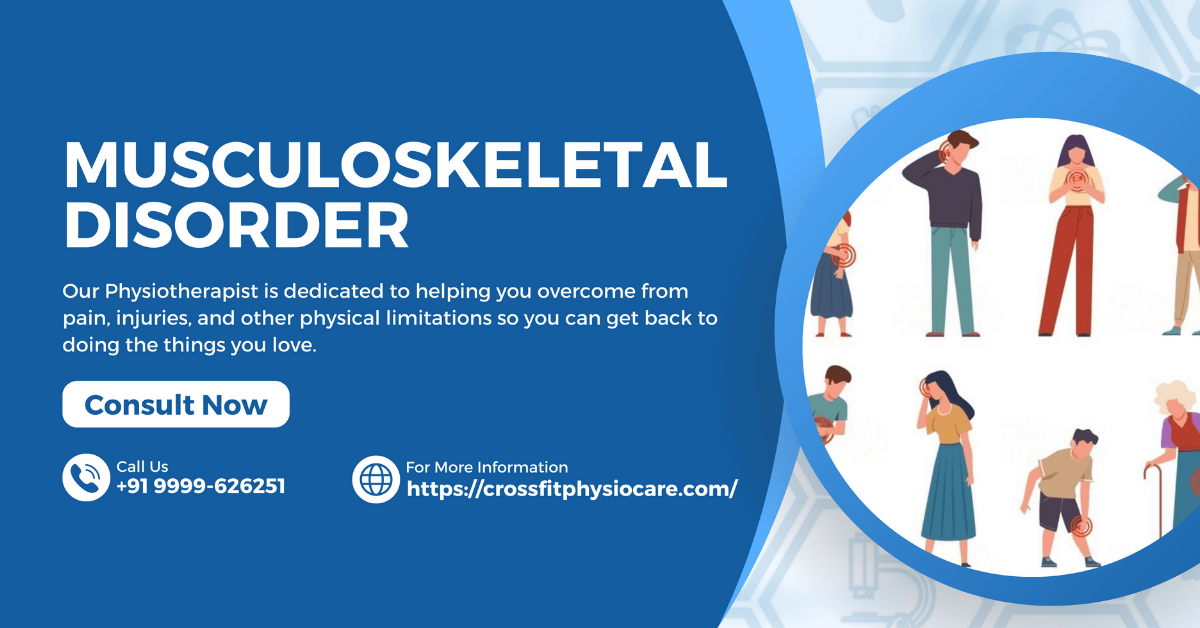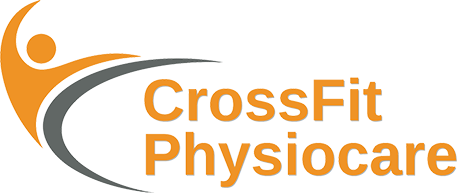
Musculoskeletal Disorder
Musculoskeletal disorders (MSDs) refer to a group of conditions that affect the muscles, bones, tendons, ligaments, joints, and other supporting structures of the body. MSDs can cause pain, discomfort, and limitations in movement, impacting an individual’s ability to perform daily activities and affecting their overall quality of life. These disorders can range from acute injuries to chronic conditions and may affect various parts of the body.
Common Types of Musculoskeletal Disorders:
Back Pain: One of the most common MSDs, often caused by muscle strain, herniated discs, or poor posture.
Neck Pain: Similar to back pain, neck pain can result from muscle strain, poor posture, and conditions like cervical spondylosis.
Osteoarthritis: A degenerative joint disease that affects the cartilage and bones, leading to joint pain, stiffness, and reduced range of motion.
Rheumatoid Arthritis: An autoimmune disorder that causes inflammation in the joints, leading to pain, swelling, and deformities.
Tendonitis: Inflammation of the tendons, which can cause pain and restricted movement.
Carpal Tunnel Syndrome: Compression of the median nerve in the wrist, resulting in pain, tingling, and numbness in the hand and fingers.
Frozen Shoulder: Stiffness and pain in the shoulder joint, limiting its range of motion.
Rotator Cuff Injuries: Tears or strains in the rotator cuff muscles, leading to shoulder pain and weakness.
Ligament Sprains: Overstretching or tearing of ligaments, often due to sudden movements or trauma.
Fractures: Broken bones resulting from accidents, falls, or trauma.
Causes and Risk Factors:
Repetitive Movements: Activities that involve frequent repetitive motions, such as typing or manual labor, can lead to MSDs.
Poor Posture: Incorrect sitting or standing posture can strain muscles and lead to MSDs.
Overuse: Overusing certain muscles or joints without adequate rest can contribute to the development of MSDs.
Injuries: Trauma from accidents, falls, or sports-related incidents can cause acute MSDs.
Age: Some MSDs, like osteoarthritis, are more common with aging.
Genetics: Certain genetic factors can increase the susceptibility to MSDs.
Treatment and Management:
The treatment and management of MSDs depend on the specific condition, its severity, and individual needs. Common approaches include:
Physical Therapy: Therapeutic exercises, stretches, and techniques to improve flexibility, strength, and function.
Pain Management: Medications, both over-the-counter and prescription, can help manage pain and inflammation.
Rest and Activity Modification: Rest and avoiding activities that exacerbate the condition can aid in recovery.
Ergonomic Modifications: Making changes in workstations or daily activities to improve posture and reduce strain.
Bracing or Support: Using orthotics, braces, or supportive devices can help alleviate strain on affected areas.
Injections: Corticosteroid injections can provide temporary relief for certain MSDs.
Surgery: In severe cases or when conservative treatments fail, surgical intervention may be considered.
If you suspect you have a musculoskeletal disorder or are experiencing pain, it’s important to seek medical evaluation. A healthcare provider can diagnose the condition, recommend appropriate treatment, and help you manage and improve your musculoskeletal health.
- Daani Plaza E-595-596, 4th Floor, Ramphal Chowk Rd, Block E, Sector 7 Dwarka, New Delhi - 110075
- +91 99996 26251
- support@crossfitphysiocare.com
How can we help you?
If you are looking for the best and nearest physiotherapist, then click below to message us on WhatsApp.
